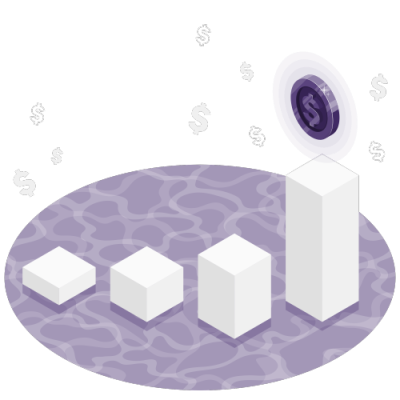When it comes to starting and running a campground or RV park, one of the most important decisions you’ll make is what to charge for your services. This article will provide average campground rates and fees, as well as tips on how to determine your own rates. So, whether you’re just getting started or you’re looking to make a change in your pricing, read on for some helpful information.
What Are The Average Campground Rates And Fees?
Average campground rates can vary greatly, depending on the location, type of amenities, and time of year. For example, a basic campsite with no hookups in a remote location is going to be much less expensive than a full-service RV site with a pool and clubhouse in a popular destination. However, there are some average rates that can give you a general idea of what to expect.
- The average nightly rate for a tent campsite in a private campground with no hookups is $40-$60, depending on location.
- The average nightly rate for a tent campsite in a state-owned campground with no hookups is $20-$40, depending on location.
- An RV campsite in a state RV park with water and electric hookups will cost an average of $40-$80 per night, depending on location.
- A full-service RV site in a public RV park will cost an average of $50-$200 per night, depending on location,
These rates will also vary depending on the popularity of the campground and the season of the year. For example, a campground in a major city is going to charge more than a campground in a small town. And, a full-serve RV park that’s open in a warm, desert climate during winter months will charge campers a “high-season” rate that is 20-40% over rates during other times of the year.
So, what about fees? In addition to the nightly rate, most campgrounds also charge an extra fee for “visitors” who visit friends or family staying in a campsite at the campground. Some campgrounds will also charge for more than one vehicle, and also for any pets who enter the campground.
Finally, many campgrounds also charge a reservation fee. This fee is usually $10-$20 and is charged per site, not per person. Some campgrounds require reservations for all stays, while others only accept them for peak times or for stays of more than a few days.
Now that you have an idea of average campground rates and fees, you can start to think about what you’ll charge at your own campground. But, how do you determine the right price? Read on for some tips.
How To Determine Your Rates And Fees
As mentioned, there are many factors that affect the price of a campsite, so it’s important to do your research before setting your rates. Here are a few things to consider when determining your campground rates and fees.
Research Your Competition
One of the best ways to determine the rates for your campground is to look at what other private, county and state campgrounds in the area are charging. This will give you a good idea of the going rate for different types of sites and will help you price your own campground competitively.
Consider Your Expenses
Another important factor to consider when setting your rates is your expenses. Be sure to factor in the cost of utilities, maintenance, insurance, and any other operating costs. You’ll also want to make sure you’re pricing your sites high enough to cover these expenses and still make a profit.
Factor In Demand And Popularity
You’ll also want to factor in demand and popularity when setting your rates. If your campground is in a popular destination or if you have many repeat guests, you can charge more than the average cost for your area. On the other hand, if your campground is in a remote location or has many competitive campgrounds nearby, you may need to price your sites a bit lower to attract guests.
Consider The Amenities You Provide
When pricing your campground’s sites, be sure to consider the amenities you provide. Some of the most popular amenities campers look for are: a swimming pool, pet-friendly environment, play area for children, free Wi-fi, metal fire ring and grills for each site, a laundry room, showers and safe, clean restrooms. If your campground contains any or all of these features, you can charge more than a campground that only has basic restrooms.
Factor In The Season
Another factor to consider when setting rates is the season. Many campgrounds raise their rates during a “high-season” when demand is highest. For example, a campground in a beach town can raise rates during the warm summer months, knowing the campground will probably be full of beachgoing campers. In the winter months, many RV campgrounds with full-service amenities situated near ski resorts will raise rates and charge more for winter-loving ski enthusiasts.
Charge More For Hookups And Extra Passengers
If your campground has full-service hookups (water, electric, and sewer), or if you offer specialty services, such as overnight garbage pickup, you can charge more for what would be considered “high-end” sites. Full-service hookups typically add $20-30 per night to the regular charge for a site, while additional amenities can add $5-$10 per night to the standard charges.
Conclusion
By considering these factors, you can determine the best rates and fees for your campground. Be sure to do your research and factor in your expenses, competition, amenities, and customer demand when setting your prices. With a little bit of planning, you can price your campground competitively and attract guests all year long.

